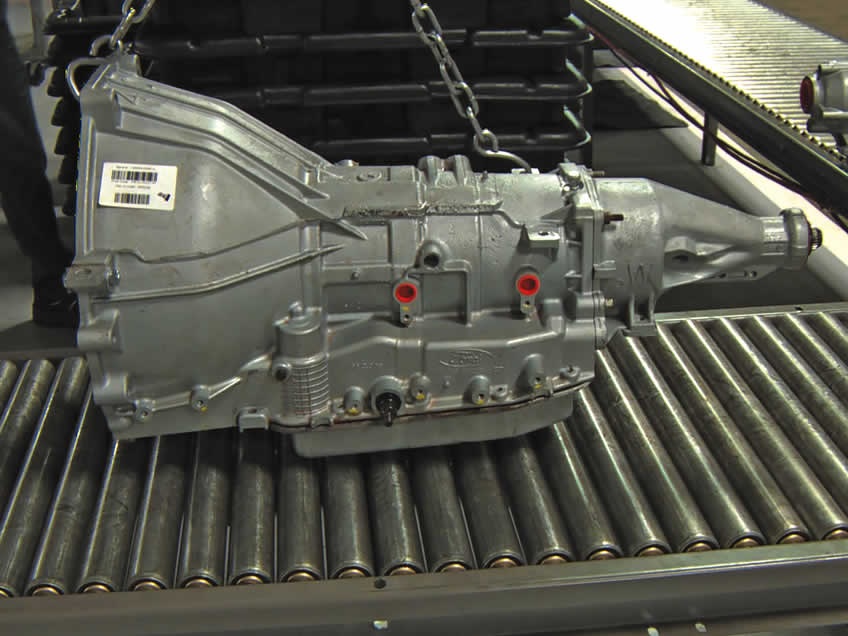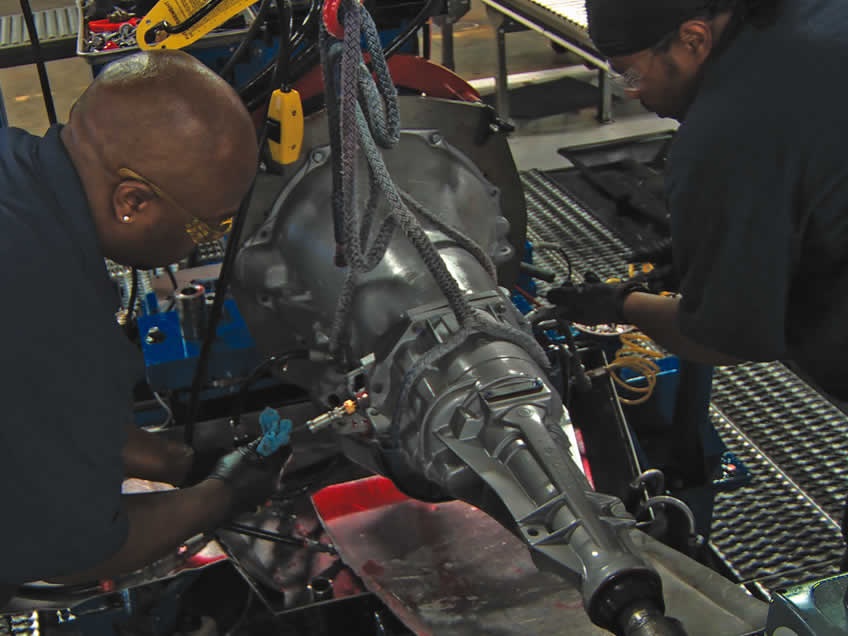Originally published on 06/21/2015
Updated on 05/24/2023
As a driver or vehicle owner, it's important to be aware of any potential issues that may arise with your vehicle. One of the most crucial components to keep an eye on is the transmission. A malfunctioning transmission can lead to costly repairs and even render your vehicle inoperable. Unfortunately, many drivers are unaware of the warning signs that their transmission may need repair. In this article, we'll discuss five of the most common warning signs that indicate your vehicle may require transmission repair, so you can identify these issues early on and prevent more serious problems down the road.
Warning Signs of Transmission Failure
You must be mindful of the symptoms of a failing transmission to guarantee that it remains in excellent condition. So, let's go over a few warning signs of transmission failure so that you don't have to go through a costly repair:
1. Delayed Engagement
Delayed engagement is a condition in which the automatic transmission of a vehicle takes a longer time than usual to engage or shift into gear after the driver has shifted the gear selector lever. This means that when you put your vehicle into gear (such as from park to drive), there is a delay before it begins moving.
This lag in performance can be caused by various factors such as low fluid level, damaged clutch bands, worn gears, or solenoid issues. The symptoms of delayed engagement can vary depending on the severity of the issue. In some cases, the transmission may only take a second or two to engage, while in other cases, the delay can be several seconds or more. The driver may notice a hesitation or a jerk when the transmission finally engages, and the vehicle may move forward slowly or sluggishly.
If you are experiencing any of these symptoms, have your vehicle inspected by a qualified transmission technician as soon as possible to determine the cause of the problem.
2. Slipping Out of Gear
One of the most common symptoms of a failing transmission is slipping out of gear. This occurs when the transmission fails to properly engage a gear or shifts between gears while driving. You may notice that your vehicle is struggling to accelerate or that the engine revs higher than usual without a corresponding increase in speed. Various issues, including low transmission fluid levels or damaged gears, can cause slipping. If left unchecked, this symptom can escalate to even more severe transmission problems, such as total transmission failure or damage to other components. This can be especially dangerous if you're driving on the highway or in heavy traffic, as the sudden loss of power or control can put you and other drivers at risk of a collision. It's essential to have your transmission immediately checked if you notice any slipping gears to prevent further damage and ensure your safety on the road.
3. Strange Noises
The make and model of the vehicle can affect the noises a vehicle makes in most cases. Every vehicle also has its own unique set of typical noises. Occasionally, a transmission issue might produce odd, peculiar sounds you would not often hear.
Strange, new noises are often one of the first indications that something is wrong with your transmission. You may hear a whining or buzzing noise when shifting gears or a grinding noise when the transmission is under heavy load. Various issues, such as worn gears or bearings, low fluid levels, or damaged synchronizers, can cause these noises. Pay attention to any unusual sounds coming from your vehicle and have them inspected by a professional as soon as possible. Ignoring strange noises can lead to more serious transmission problems and expensive repairs.
4. Burning Smell
Another common symptom of transmission failure is a burning smell, which can indicate that your transmission is overheating or the fluid is burning. This can be caused by a variety of issues, such as low transmission fluid levels, damaged or worn-out clutches, or a malfunctioning torque converter. Heat can immediately damage your transmission and other vehicle components, leading to complete failure of the transmission.
If you notice a burning smell coming from your vehicle, it's crucial to have it inspected by a professional mechanic as soon as possible to prevent further damage and ensure your safety on the road.
5. Leaking Fluid
Leaking transmission fluid is one of the top signs of transmission failure because the transmission system in a vehicle relies on a precise balance of fluid pressure and lubrication to function correctly. The fluid in a transmission is responsible for cooling, cleaning, and lubricating the transmission's internal components, including its gears and clutches.
If there is a leak in the transmission system, your transmission will not have enough fluid to operate effectively. Various issues can quickly arise, such as slipping gears, difficulty shifting, and even complete transmission failure.
Leaking fluid is also an indication that there is likely a problem with one of the transmission's seals or gaskets. These components are responsible for preventing fluid from escaping the transmission, so fluid can leak out if they are damaged or worn.
If you notice any signs of a transmission fluid leak, such as a puddle of fluid under your vehicle, have your vehicle inspected by a qualified technician as soon as possible to prevent further damage and potential transmission failure.
Tips for Better Maintaining Your Transmission
Transmission repairs can be expensive, based on your car's age and type. Thus, to prevent things from getting out of control, it is best to take proper care of the transmission. So, here are a few tips for better maintaining it:
1. Regular Maintenance
Maintaining your transmission involves performing several tasks that can help keep your transmission running smoothly and prevent future problems. Here are some key maintenance tasks:
- Checking the transmission fluid level: The transmission fluid level should be checked regularly to ensure it's at the proper level. Low fluid levels can cause damage to the transmission, so it's important to keep the fluid topped up.
- Changing the transmission fluid: The transmission fluid should be changed according to the manufacturer's recommendations in your owner's manual. Over time, the fluid can break down and lose its ability to lubricate and cool the transmission, so replacing it on schedule is important.
- Replacing the transmission filter: The transmission filter should be replaced when the transmission fluid is changed. The filter helps remove contaminants from the fluid, and a clogged filter can restrict the flow of fluid and cause damage to the transmission.
- Checking for leaks: Transmission fluid leaks can cause damage to the transmission, so it's important to check for leaks regularly and have them repaired promptly if they're found.
Performing these maintenance tasks can extend the life of your transmission and prevent costly repairs down the line. Consult your vehicle owner's manual or a qualified mechanic for specific recommendations for maintaining your transmission.
4. Reacting Quickly Is Key to a Healthy Transmission
Reacting quickly to signs of transmission failure can save you time, money, and serious accidents. Ignoring the warning signs can result in more catastrophic damage to your vehicle's transmission, which can be costly to repair or require a complete transmission replacement. Here are some reasons why taking action as soon as you notice any warning signs is important:
- Delaying repairs can lead to further damage to your vehicle's transmission, resulting in more expensive repairs. Addressing issues before they become a bigger problem is much more cost-effective.
- If you continue to drive your vehicle with a faulty transmission, it can eventually fail, leaving you stranded and requiring costly towing and repair services.
- A malfunctioning transmission can cause serious accidents due to unpredictable performance, putting you and other drivers on the road at risk.
It's important to be proactive about vehicle maintenance and address any issues as soon as they arise to keep your vehicle running smoothly and safely on the road.
Let Us Help with Your Transmission Needs
Being aware of the warning signs that your vehicle may need transmission repair can save you a lot of hassle and money in the long run. Ignoring these signs can further damage your vehicle and cause complete transmission failure. If you have noticed any of these warning signs, bring your vehicle to an experienced transmission repair shop for inspection and repairs. At AAMCO Overland Park, we specialize in transmission repairs, and our trained technicians can diagnose and fix any issues with your transmission quickly and efficiently. Don't wait until it's too late! Contact us today to schedule an appointment.










